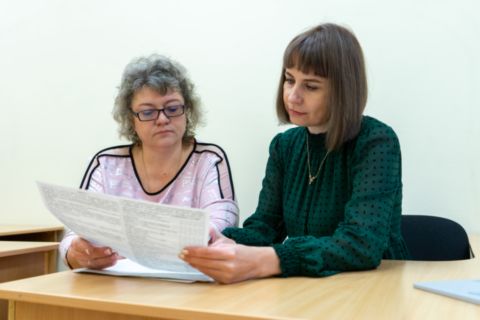Russian and Chinese scientists are working to examine the correlation between students' personality traits and their commitment to a healthy lifestyle during the COVID-19 epidemic. Preliminary results of the study were published in the highly-rated International Journal of Environmental Research and Public Health. The study involved 1215 students from four universities in the Ural region: South Ural State University (SUSU), Chelyabinsk State University, Ural Federal University, and Russian state vocational-pedagogical university.
The work was carried out under the guidance of specialists from the National Research University Higher School of Economics (Moscow) and the Scientific and Educational Russian-Chinese Center for Systemic Pathology of SUSU.
"As you know, changes in society during quarantine occurred both in an unfavorable and a favorable direction. What might it depend on? Personal factors of psychological susceptibility to COVID-19 remain understudied throughout the world. The use of generally accepted methods made it possible to analyze the material and draw comparative conclusions about the prevalence and severity of psychological distress,” said Alexei Sarapultsev, head of the SUSU Scientific and Educational Russian-Chinese Center for Systemic Pathology.
To measure personal qualities, the Big Five questionnaire was used, compiled based on a factor analysis of five independent variables: anxiety, sociability, openness to experience, cooperation and conscientiousness. Respondents rated their agreement with judgments fixing these variables on a five-point scale. To evaluate lifestyles, the researchers used the Brief Multivariate Lifestyle Assessment (SMILE-C) methodology. SMILE-C consists of 27 questions that explored seven aspects of healthy living during the COVID-19 pandemic: diet and nutrition, substance use, physical activity, rest, sleep, social support and environmental exposure. Higher scores indicate a healthier lifestyle.
.jpg)
The analysis was conducted using the IBM SPSS software. In the first stage, descriptive statistics and a correlation matrix were calculated for all the variables under study. In the second stage, a multivariate regression analysis of personal risk factors for a healthy lifestyle was made during the COVID-19 pandemic. The results of this study have shown that personality traits largely determine the response to such stressful challenges as epidemics. Such personality traits as sociability can contribute to the effective stress management and friendly and conscientious people can, on the contrary, form a risk group for the use of psychoactive substances. These studies may be of interest to both the scientific community and students, as they allow them to better understand themselves and predict possible risks.
The results obtained may be useful in further study of the relationship between human personality traits and healthy practices in difficult life circumstances. SUSU supported the study as part of the development of Russian-Chinese Center for Systemic Pathology. At the moment, preparations are underway to scale up research work on the territory of China. In addition, it is planned to develop a system for assessing and predicting behavior, success, and possible difficulties for students.
South Ural State University is a university of transformation where innovative research is carried out in most priority areas of science and technology development. Following the strategy of scientific and technological development of the Russian Federation, the university focuses on the development of large scientific interdisciplinary projects in the field of the digital industry, materials science, and ecology. In 2021, SUSU won the competition under the Priority 2030 program. The university performs the functions of a regional project office of the Ural Interregional Scientific and Educational Center of the world level.
You may join and read more news of the university in the official Telegram Channel.




